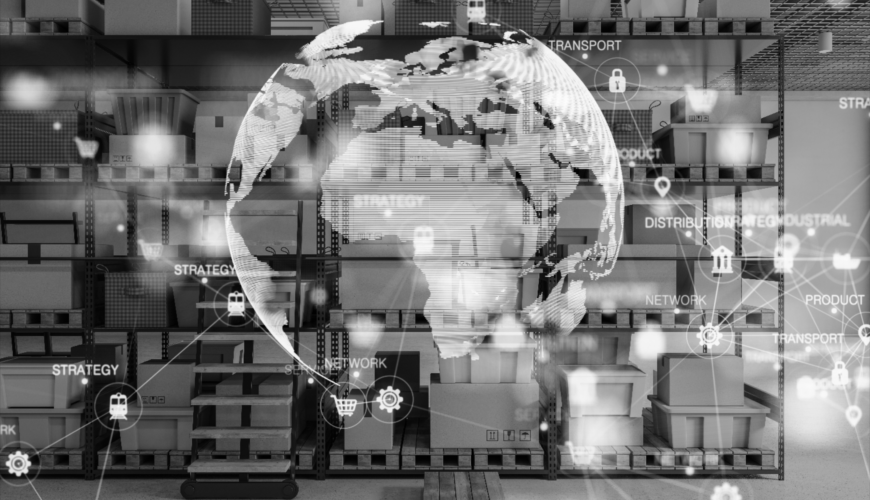The retail logistics market encompasses the processes and systems involved in managing the movement of goods from suppliers to retailers and, ultimately, customers. The globalization of supply chains has played a pivotal role in expanding retailers’ reach, enabling them to serve diverse markets effectively. This expansion is facilitated by efficient logistics solutions that ensure quick and reliable product delivery, enhancing customer satisfaction and loyalty.
Efficient logistics is pivotal in meeting sustainability goals by optimizing transportation routes and reducing carbon emissions. This proactive approach significantly contributes to broader environmental concerns.
Key Components
Warehousing and distribution require efficient strategies to handle inventory, including automated storage and retrieval systems (AS/RS). Strategically located distribution centers can streamline the flow of goods to various retail locations and customers.
Freight management coordinates the movement of goods via various transportation modes, such as trucks, ships, and airplanes. Last-mile delivery, a critical aspect of e-commerce logistics, ensures efficient and timely delivery to the final customer, enhancing customer satisfaction and loyalty.
Utilize technologies like RFID and IoT for real-time inventory tracking and management. However, the real game-changer is the use of data analytics and AI. These powerful tools can predict demand and optimize inventory levels, ensuring that retailers have the right products in the right place at the right time. This level of preparedness instills confidence in retailers and provides a seamless customer experience.
Adopt efficient order picking and packing processes, often involving automation and robotics. Coordinate shipping with carriers to ensure timely and cost-effective shipping options. Handle returned goods efficiently, including restocking, refurbishing, or recycling. Implement eco-friendly practices in reverse logistics to minimize waste.
Market Trends
The surge in online shopping is driving demand for more sophisticated retail logistics solutions. Integrate online and offline channels to provide a seamless shopping experience. Enhance efficiency in warehousing, picking, packing, and transportation. Adopt AI for predictive analytics, demand forecasting, and optimizing logistics operations.
Ensure transparency and security in the supply chain. Adopt eco-friendly practices, such as using electric vehicles for delivery and optimizing routes to reduce carbon emissions. Emphasize the reuse and recycling of products and materials. Consider the increasing demand for same-day and next-day delivery options.
Offer multiple delivery options, such as home delivery, click-and-collect, and locker pickups. Manage the complexities of international shipping, customs regulations, and trade compliance. Ensure resilience and agility in global supply chains, particularly during disruptions like the COVID-19 pandemic.
Challenges
Manage the rising costs of labor, fuel, and transportation. Balance the need for fast delivery with cost-efficiency. Adapt to supply chain disruptions caused by global events, such as pandemics and natural disasters. Manage inventory shortages and delays in production and transportation. Integrate new technologies with existing legacy systems. Ensure the security and privacy of data across the supply chain. Navigate complex international trade regulations and tariffs. Comply with environmental laws and sustainability standards.
Looking Forward
- Increase the use of IoT and AI for real-time inventory management and predictive maintenance
- Greater adoption of robotics and automated systems for enhanced efficiency
- Leverage big data analytics for better decision-making and operational optimization
- Use predictive analytics to anticipate demand and manage inventory effectively
- Offer personalized delivery options and real-time tracking for customers
- Use technology to enhance customer engagement and satisfaction
- Continue emphasis on sustainable practices, such as green packaging and carbon-neutral logistics
- Explore regenerative practices that restore and renew resources
The retail logistics market is evolving rapidly, driven by technological advancements, changing customer expectations, and a growing focus on sustainability. Companies that adapt to these trends and challenges will be better positioned to succeed in the competitive retail landscape.


